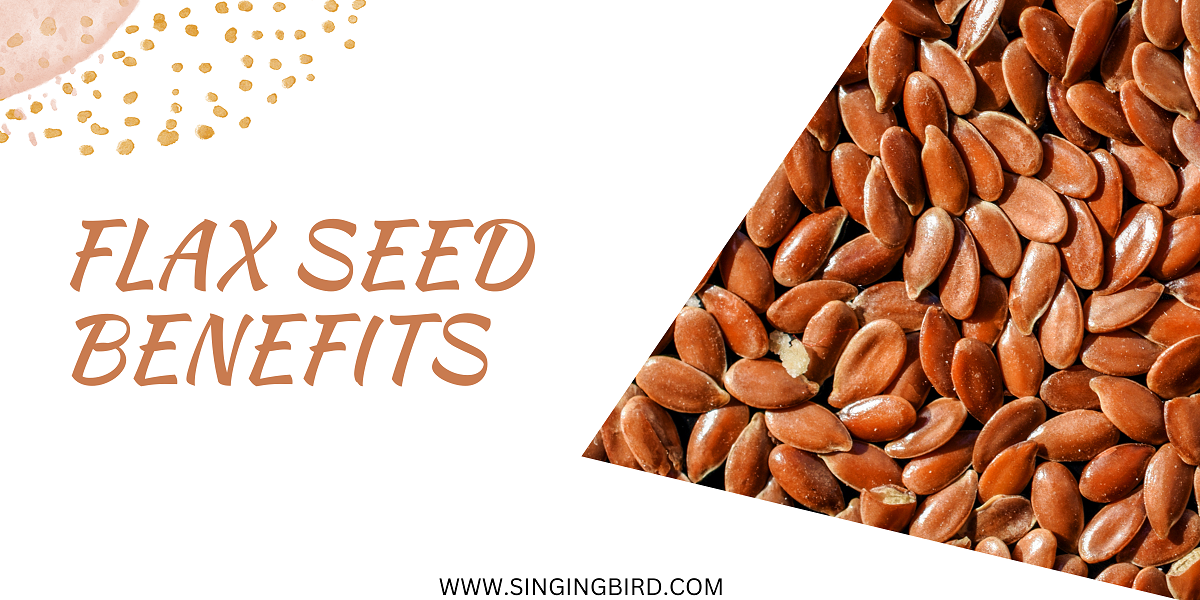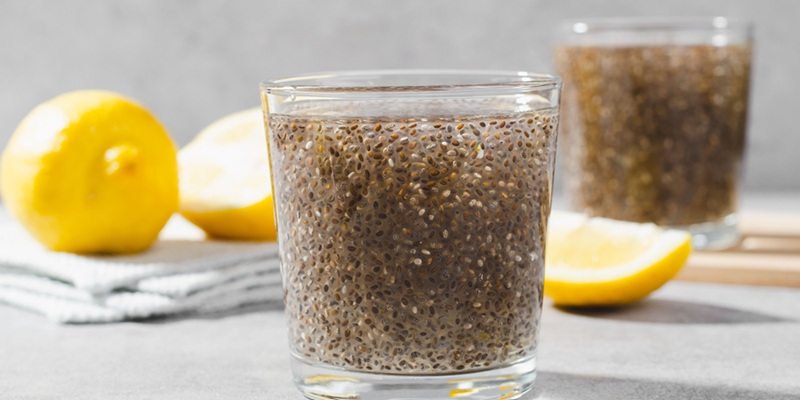What are Flax Seeds?
Flax seeds, also known as linseeds, are small brown or golden-colored seeds that come from the flax plant (Linum usitatissimum). Flax seeds are a rich source of fiber, healthy fats, vitamins, minerals, and antioxidants, and they have been used for centuries as a traditional food and medicine.
Nutritional Profile of Flax Seeds
- Macronutrients : Flax seeds are a good source of plant-based protein, containing about 6 grams of protein per 2 tablespoons (20 grams) of whole flax seeds. They are also high in healthy fats, particularly omega-3 fatty acids, with about 4 grams of fat per 2 tablespoons.
- Fiber : Flax seeds are an excellent source of both soluble and insoluble fiber, with about 4 grams of fiber per 2 tablespoons. The fiber in flax seeds can help promote regular bowel movements, lower cholesterol levels, and improve blood sugar control.
- Vitamins : Flax seeds are a good source of several vitamins, including vitamin E and thiamine (vitamin B1). Vitamin E is an antioxidant that helps protect cells from damage, while thiamine is important for energy metabolism.
- Minerals : Flax seeds are a rich source of several minerals, including magnesium, phosphorus, and potassium. Magnesium is important for bone health, while phosphorus and potassium are important for muscle function and blood pressure control.
- Phytochemicals : Flax seeds are also rich in phytochemicals, including lignans, which have antioxidant properties and may help lower the risk of certain cancers, and plant sterols, which can help lower cholesterol levels.
Benefits of Flaxseed and Why you should consider adding it to your diet today.
- Rich in Omega-3 Fatty Acids : Flaxseed is one of the richest plant-based sources of omega-3 fatty acids, which are essential for maintaining heart health. Omega-3 fatty acids help reduce inflammation in the body, which can lower the risk of heart disease, stroke, and other chronic conditions. Eating flaxseed regularly can also help reduce bad cholesterol levels, making it an excellent addition to a heart-healthy diet.
- High in Fiber : Flaxseed is also an excellent source of dietary fiber, which is important for digestive health. The fiber in flaxseed helps regulate bowel movements, preventing constipation and other digestive problems. It also helps you feel full for longer, reducing your appetite and aiding in weight management. Adding flaxseed to your diet can help you meet your daily fiber needs and improve your overall digestive health.
- Good for Skin Health : Flaxseed is rich in antioxidants, which can help protect your skin from damage caused by free radicals. Free radicals can damage your skin cells, causing premature aging and other skin problems. Eating flaxseed regularly can help protect your skin from damage, reducing the risk of wrinkles, fine lines, and other signs of aging.
- May Help Lower Cancer Risk : Flaxseed contains lignans, which are compounds that have been shown to have anti-cancer properties. Studies have found that eating flaxseed regularly may help reduce the risk of breast cancer, colon cancer, and other types of cancer. While more research is needed in this area, adding flaxseed to your diet is a simple and easy way to potentially reduce your cancer risk.
- Supports Hormonal Balance : Flaxseed contains phytoestrogens, which are plant compounds that can help balance hormones in the body. This can be particularly helpful for women going through menopause, as it can help reduce hot flashes and other symptoms. However, it is important to note that more research is needed in this area, and you should talk to your doctor before using flaxseed as a hormonal supplement.
- May Help Improve Blood Sugar Control : Flaxseed has been shown to have a positive effect on blood sugar control, making it a useful addition to a diabetic diet. The fiber and healthy fats in flaxseed can help slow the absorption of sugar into the bloodstream, reducing blood sugar spikes. This can help improve insulin sensitivity and reduce the risk of type 2 diabetes.
- Easy to Add to Your Diet : One of the best things about flaxseed is how easy it is to add to your diet. You can sprinkle it on your oatmeal or yogurt, add it to smoothies, or mix it into baked goods like muffins or bread. You can also find flaxseed oil, which can be used in salad dressings or as a cooking oil. With so many versatile ways to incorporate flaxseed into your diet, there’s no reason not to give it a try!
Conclusion
In conclusion, incorporating flax seeds into your diet can offer a multitude of health benefits. From improving digestion and heart health to reducing inflammation and supporting brain function, these tiny seeds are packed with essential nutrients that can contribute to an overall healthier lifestyle.






